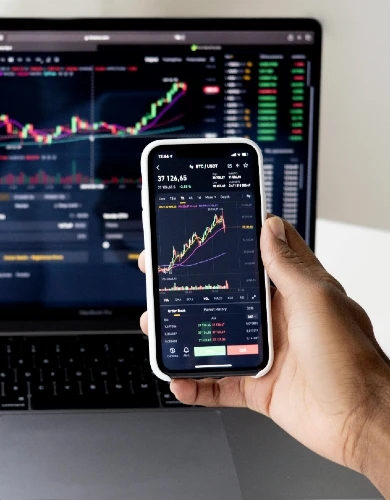Ofgem’s role in business energy
This article explains Ofgem’s role in protecting business energy customers. Here’s what we cover:
- Who is Ofgem?
- Ofgems business energy price controls
- Ofgem business energy supplier regulations
- Ofgem’s contact details
Who is Ofgem?
Ofgem is a non-ministerial department that independently oversees and regulates companies involved in the deregulated British energy industry. The acronym “Ofgem” stands for the “Office of Gas and Electricity Markets.
Ofgem’s role and responsibilities
Before we go into the specifics of how Ofgem regulates business energy, here’s a summary of its general role and responsibilities across the entire market:
- Protecting consumers: Ofgem ensures consumers receive fair prices and reliable service by monitoring suppliers and enforcing standards of conduct. One prominent example is Ofgem’s domestic energy price cap.
- Promoting competition: Ofgem encourages a competitive energy market by supporting new entrants, overseeing fair pricing, and simplifying switching processes.
- Regulating energy networks: Ofgem controls the prices of natural monopolies like the national grid and distribution network operators that operate parts of the energy network.
- Supporting the transition to net zero: Ofgem oversees environmental programmes, incentivises renewable energy, and promotes energy efficiency to support the UK’s aim to decarbonise the national grid.
Ofgems business energy price controls
Ofgem’s approach to controlling energy prices is centred on fostering a competitive, transparent, and fair market.
Where there is market competition, such as between energy suppliers, Ofgem does not control prices, as businesses are free to choose their suppliers. However, for other components of business energy costs, like the fees for using the national grid, Ofgem directly controls prices, as consumers have no other viable alternative.
Here’s a summary of how Ofgem regulates each component of commercial gas rates and business electricity prices.
| Cost Component | Description | Ofgem Regulation/Role |
|---|---|---|
| Wholesale Energy Costs | The cost of purchasing electricity or gas on the wholesale market. | Market Oversight: Ofgem monitors the wholesale market to ensure fair pricing and prevent market abuse. |
| TNUoS Charges | Charges for using the high-voltage electricity transmission network to deliver electricity across the country. | Price Control Regulation: Ofgem sets price controls for transmission operators to cap allowable charges. |
| DUoS Charges | Charges for using local distribution networks to deliver electricity and gas to businesses. | Price Control Regulation: Ofgem limits charges through price controls for distribution network operators. |
| BSUoS Charges | Costs associated with balancing supply and demand on the electricity network in real time. | Monitoring and Cost Recovery: Ofgem ensures costs are transparently passed to suppliers and helps regulate market rules. |
| Network Losses | The cost of energy lost as it travels through transmission and distribution networks. | Efficiency Incentives: Ofgem incentivises networks to reduce losses through efficiency targets. |
| Metering and Meter Reading Costs | Costs associated with installing, maintaining, and reading meters at business premises. | Standard Setting and Monitoring: Ofgem sets standards and oversees compliance of Meter Operators to ensure fair metering charges. |
| Business Energy Supplier Margins | Operational costs incurred by suppliers, including billing, customer service, and administrative fees. | Supplier Conduct Standards: While Ofgem doesn’t directly control these costs (unlike the price cap for households), it enforces fair pricing standards to protect consumers. |
| Climate Change Levy (CCL) and VAT on business energy | Government taxes on energy use, including VAT (20%) and the CCL for non-domestic users. | Taxation Regulation: Although these are government-imposed, Ofgem ensures accurate billing by suppliers. |
Ofgem’s business energy supplier regulations
Ofgem regulates and licenses commercial electricity and business gas suppliers in Britain. Ofgem publishes an up-to-date list of licensed suppliers on its website.
We’ll summarise the rules that Ofgem enforces for the conduct of business energy suppliers.
Complaints against business energy suppliers
Ofgem does not directly manage complaints against business energy suppliers but recommends the following steps to resolve complaints:
- Contact your supplier: Reach out directly to your supplier, explaining the issue and your desired resolution.
- Allow time for resolution: Suppliers have eight weeks to resolve complaints. Keep records of all communications.
- Escalate to the Energy Ombudsman: If the issue remains unresolved after eight weeks or if you receive a “deadlock letter,” contact the Ombudsman for free, independent support.
For more information, please visit our full guide to business energy supplier complaints.
Fair treatment of customers
Ofgem enforces standards of conduct for licensed energy suppliers, setting out how they must treat business energy customers. Here’s a summary:
- Provide accurate and timely billing: Suppliers must ensure accurate invoicing and provide clear, regular statements, allowing businesses to manage their commercial gas and business electricity bills.
- Communicate contract terms clearly: Suppliers are required to communicate business energy contracts transparently, avoiding complex or misleading language.
- Ensure fair switching processes: Suppliers must streamline the process for switching business energy suppliers, avoiding unnecessary delays using the objections process that could hinder a business from choosing another supplier.
- Complaints: Suppliers are obligated to have effective complaints processes in place for business customers.
Regulations for business energy brokers
Ofgem does not directly regulate or license business energy brokers, but it does provide some protections for small business energy customers:
- Broker commission disclosure: Business energy contracts must clearly display any broker commission included within business energy rates. (Before October 2024, this requirement applied only to microbusinesses, but it now applies to businesses of all sizes.)
- Brokers register: Suppliers can only work with brokers registered with the Energy Ombudsman service, which helps resolve disputes between brokers, suppliers, and consumers.
The Energy Ombudsman only provides an independent dispute resolution service for businesses with fewer than 50 employees.
💡Our business energy comparison service is managed by accredited business energy brokers registered with the Energy Ombudsman.
Ofgem’s role when business energy suppliers go bust
When a business energy or gas supplier stops trading, Ofgem steps in to provide a safety net, ensuring the supply of electricity and gas is not interrupted.
The process is called SoLR, which stands for Supplier of Last Resort. Ofgem assigns a new supplier within days and transfers any previous credit, ensuring no interruption to energy supplies.
Find out more in our full guide to business energy suppliers going bust.
Encouraging new business energy suppliers
Ofgem actively encourages the participation of private companies in the energy market to drive innovation and pricing competition.
A notable example of the success of this strategy is Octopus Business Energy, which has successfully disrupted the ‘big six’ suppliers and is now the largest electricity supplier in the UK.
Private companies can play several roles in the energy market following a relatively simple application process.
For example, a company can apply for a business energy supplier licence for a fee of £1,800 or an independent gas transporter licence for £3,200.
As part of the application process, Ofgem conducts checks to ensure that the company has the expertise to fulfil its role and does not pose a risk to market stability.
Administering the REGO scheme
Ofgem operates the Renewable Energy Guarantee of Origin scheme in Britain and Northern Ireland.
Ofgem’s role is to issue new REGO certificates to renewable energy generators and then facilitate the transfer of certificates to suppliers offering green business energy tariffs.
Find out more in our guide to how green business energy supplies work.
💡Ofgem is also involved in handling complaints that arise from the renewable energy Contracts for Difference scheme.
Energy market reforms
Ofgem is leading the industry-wide adoption of half-hourly settlements for all homes and businesses.
This market reform will require that all smart meters transmit readings every 30 minutes, enabling more accurate transactions between energy suppliers and generators.
Find out more in our guide to What Market-Wide Half-Hourly Settlement means for businesses.
Ofgem’s contact details
Ofgem doesn’t generally deal directly with business energy customers; instead, it directs them to the Energy Ombudsman for complaints or Citizens Advice for guidance.
If you have a direct enquiry about Ofgem’s policies or functions, you can contact them at:
- consumeraffairs@ofgem.gov.uk
- 020 7901 7295

